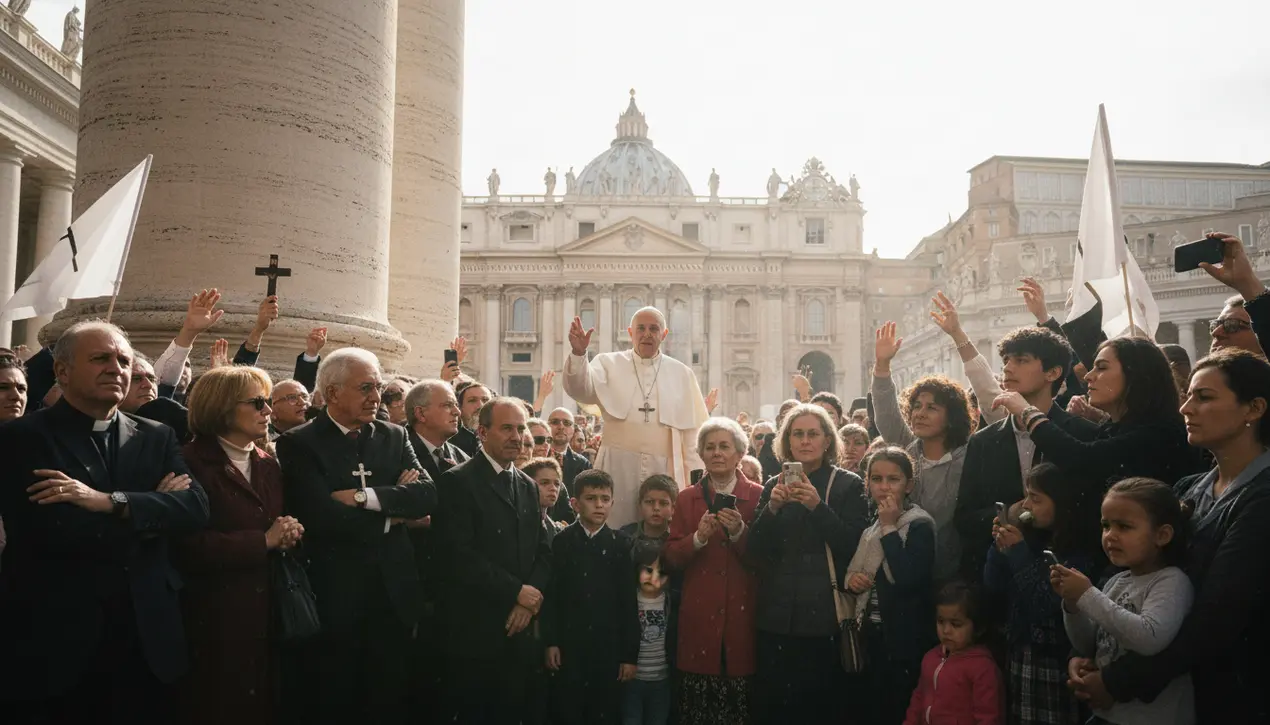
Politicshuman rightsRefugees and Migration
Beyond the Binary: The Deeper Significance of the First American Pope
RO
Robert Hayes
10 hours ago7 min read5 comments
The election of Pope Leo XIV, the first American pontiff in the two-millennia history of the Catholic Church, has sent seismic ripples through the global political and religious landscape. Yet, the American public remains largely fixated on a superficial narrative.The discourse, particularly within the United States, has been reduced to a simplistic binary: is the Pope from Chicago implicitly criticizing the Trump administration and its MAGA supporters? This framing, while politically tantalizing, fundamentally misunderstands the nature of the papacy and the historical context of Catholic social teaching. The pontiff's plainspoken Midwestern English, delivered without the filter of a Vatican translator, breaks through the secular media with an unprecedented clarity that is being mistaken for novelty.Where Pope Francis's Spanish and Italian required interpretation, often softening or obscuring nuance, Leo's direct diction lands with the force of a personal address, creating a phenomenon the American church has not encountered before. This linguistic familiarity is the true disruption, not a sudden pivot into political partisanship.The substance of his teachings on immigration, for instance, is not a departure but a continuation of a century-old magisterial tradition. One can trace a direct line from Pope Pius XII's writings on the refugee crisis of World War II, through the consistent teachings of John Paul II and Benedict XVI, to Leo's recent remarks questioning how one can claim to be 'pro-life' while endorsing the 'inhuman treatment of immigrants.' The Church's position is rooted in the foundational principle of the inherent dignity of the human person, a cornerstone of Catholic doctrine that transcends the transient platforms of any political party. The tension, then, is not between the Vatican and the White House per se, but between a timeless ethical framework and a modern political movement whose rhetoric often deliberately strips migrants of their humanity.This is where Leo's American provenance becomes critically significant. Conservative bishops and lay Catholics who previously dismissed Francis as a 'benighted Argentine' who 'didn't understand the United States' now face a pontiff who understands its culture intimately—a 'young' 70-year-old from Chicago who represents not an interregnum of liberal sentiment but a deliberate choice by the College of Cardinals for continuity.For these factions, he is not bad weather that will pass; he is their last pope, a reality forcing a painful and public recalibration. Similarly, his focus on artificial intelligence, which some have dismissed as an eccentric foray into Hollywood affairs, is a deliberate engagement with the next great anthropological shift.By choosing the name Leo, he explicitly invokes his predecessor Leo XIII, who confronted the societal upheaval of the Industrial Revolution with the groundbreaking encyclical *Rerum Novarum*. That document, often mischaracterized as socialist, actually condemned socialism while forcefully arguing for workers' rights and a living wage.In the same tradition, Leo XIV is examining AI not merely as a tool, but as a force that challenges our very definition of humanity and threatens the dignity of 'below-the-line' workers, from prop masters to set designers. The American failure, then, is a failure of historical perspective.We are watching a deeply historical papacy unfold through a relentlessly contemporary and politicized lens. The question is not whether Pope Leo is anti-MAGA, but whether the American political consciousness, in its current fractured state, can comprehend a moral authority that operates on a plane beyond its own partisan battles.
#Pope Leo XIV
#American Pope
#Catholic Church
#immigration
#AI
#Catholic social teaching
#US politics
#featured
Stay Informed. Act Smarter.
Get weekly highlights, major headlines, and expert insights — then put your knowledge to work in our live prediction markets.
Related News
Comments
Loading comments...
© 2025 Outpoll Service LTD. All rights reserved.